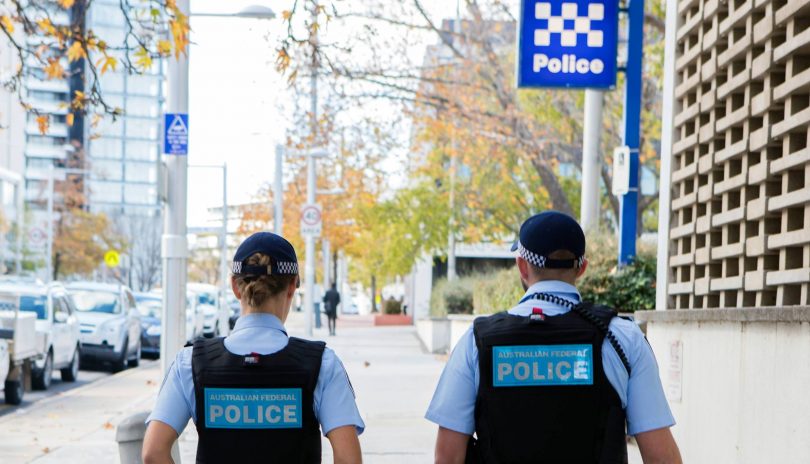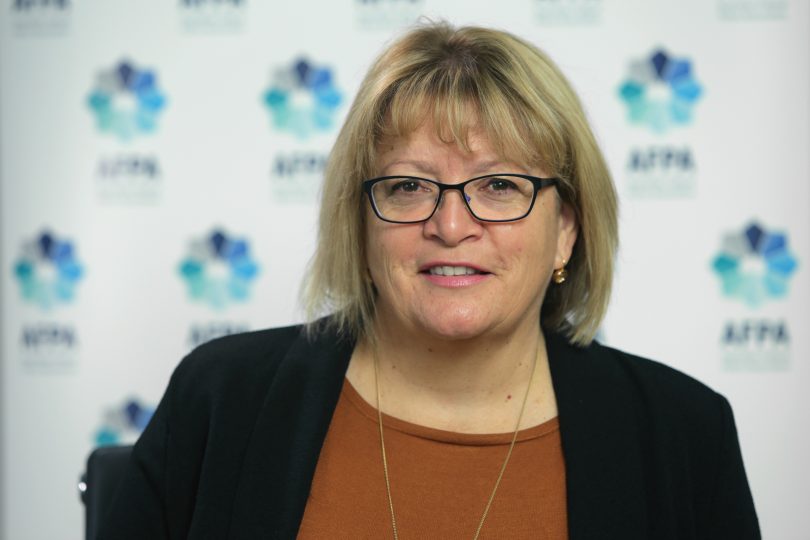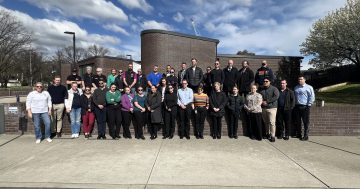
The Trauma Tracking Project has been trialled in Canberra’s City Station and AFP Forensics at Majura for the past six months. Photo: Supplied by ACT Policing.
Police officers and staff at AFP Forensics and Canberra City Police Station have been selected to take part in a new mental health pilot program which monitors staff exposure to traumatic experiences and will provide early intervention and support for those under psychological stress.
The Trauma Tracking Project has been trialled in Canberra’s City Station and AFP Forensics at Majura for the past six months, and if proven successful may soon be rolled out across the nation.
The program, which was inspired by a similar program used by the Canadian Mounted Police, is designed to monitor individuals’ cumulative exposure to traumatic events and provide early intervention and support where required.
The AFP has been under duress to improve its mental health services after four officers committed suicide in the past two years – including two within the AFP’s Barton headquarters.
Australian Federal Police Association (AFPA) president Angela Smith has been pleading with the AFP to install preventive mental health services and is relieved one has been put in place. But Ms Smith is concerned the pilot program is not a holistic solution.
“We want preventative programs in place and I hope this Trauma Tracking Project will go a long way towards that,” she said. “The AFP is helping staff deal with traumatic incidences and that is a great program but it is only half the picture.
“Many people approach the AFPA and say their mental health is due to the way they have been treated by the organisations.
“The feeling of not being looked after is what seems to tip most people over the edge. Staff are getting stressed and anxious when they are being bullied in the workplace.”
AFP Commissioner Andrew Colvin said the recent suicides had prompted the organisation to overhaul strategies for identifying officers under psychological stress and ensured the force will develop a better way to manage the issue.
Commissioner Colvin also announced that tighter firearm restrictions would be enforced to restrict officers access to their firearms.
But Ms Smith said that this was akin to “putting an ambulance at the bottom of the cliff” and is urging the AFP to find the root cause behind the growing problem.

AFPA president Angela Smith wants to see more preventative mental health services. Photo: Supplied by AFPA.
“By taking a gun off an officer, you are taking their use of force which is effectively removing their identity. Employees are putting their hands up when they have suicidal thoughts or when they don’t mentally feel well and then they are immediately penalised by being stripped of their gun,” Ms Smith said.
“They do not look at why people are struggling. Until they figure out what the root cause is, their programs are going to fail.”
An AFP spokesperson said a review into the program is anticipated to commence next month.
If you need crisis support you can call Lifeline on 13 11 14, or the suicide callback service on 1300 659 467 for professional 24/7 telephone and online counselling. You can also seek support from Beyond Blue on 1300 224 636.













